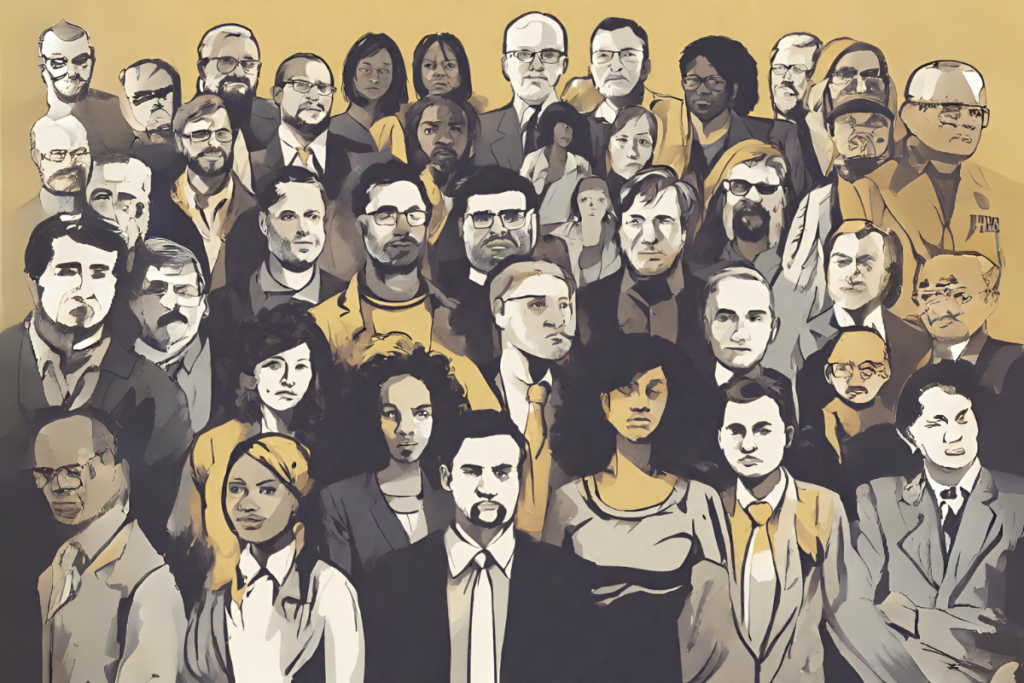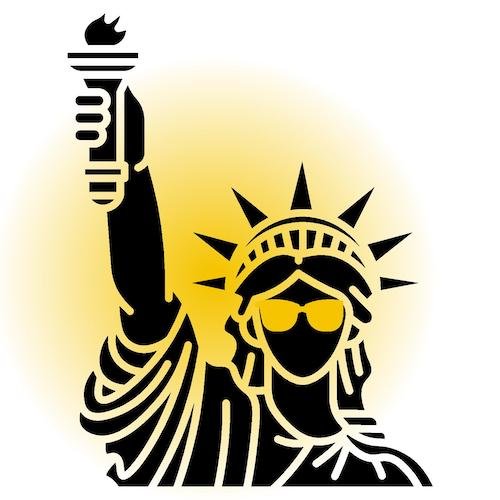The Non-Aggression Principle: Foundations and Applications

Explore the philosophical roots and modern applications of the non-aggression principle in libertarian thought, highlighting its ethical significance.
The Role of Ethics in Libertarian Thought

Libertarian ethics emphasize individual rights, voluntary interactions, and minimal government, offering solutions for environmental, technological, and social challenges.
Challenges Facing Libertarian Political Movements

In recent years, the political landscape has witnessed the steady ascent of libertarian political movements, championing individual liberty, minimal government, and staunch advocacy for free market principles. These movements, with their deep-rooted belief in the sanctity of personal freedom and skepticism of state intervention, offer a distinct vision for governance and societal organization. However, navigating the complex terrain of political activism presents a unique set of challenges. This article explores the complexities of these challenges, seeking to illuminate the obstacles confronting libertarians in the political arena. Understanding Libertarianism At its core, libertarianism is a philosophy prioritizing individual rights and advocating for a limited government role in the lives of citizens. Stemming from the enlightenment era’s ideals, it posits that individuals should have the freedom to pursue their own goals, provided they do not infringe on others’ rights. It’s important to unpack the philosophical underpinnings of libertarianism, tracing its evolution from a fringe ideology to a significant political force. Historical milestones have shaped libertarian movements globally, highlighting the diversity of thought within libertarian circles—from the anarcho-capitalist advocating for the abolition of the state to the classical liberal who favors a minimal, albeit necessary, government presence. Internal Challenges within Libertarian Movements The rich ideological spectrum within libertarian movements highlights a dynamic interplay between unity and diversity. Balancing these elements is key to fostering a movement that is both ideologically rich and strategically cohesive. Ideological Diversity and Unity One of the libertarian movement’s greatest strengths lies in its ideological diversity, a testament to the value it places on individual thought and freedom. However, this diversity also poses a challenge in maintaining a cohesive and unified front. The spectrum of libertarian thought ranges from anarcho-capitalism, which seeks to dismantle state structures in favor of voluntary associations, to classical liberalism’s more moderate stance, advocating for limited government intervention primarily to protect individual rights. This ideological breadth, while enriching, complicates consensus-building and collective action. Achieving unity without sacrificing the core principles of individual liberty and autonomy remains a balancing act for libertarian movements worldwide. Pragmatism vs. Idealism A pivotal internal challenge confronting libertarian movements is the tension between pragmatism and idealism. On one side of the spectrum are the purists, who hold steadfast to libertarian principles, advocating for radical changes to the current political and economic systems. On the other are the pragmatists, who seek to introduce libertarian ideals through incremental changes within the existing framework. This divide raises critical questions about the movement’s direction: Should libertarians compromise on their ideals for practical political gains, or should they remain unwavering, even at the cost of political viability? Striking the right balance between maintaining ideological purity and embracing pragmatic strategies for political engagement is a continuous struggle, one that shapes the movement’s approach to activism and policy advocacy. As libertarian political movements navigate these internal challenges, they also face external pressures that test their resilience and adaptability. The journey ahead requires not only introspection but also strategic maneuvering to overcome obstacles and champion the libertarian cause effectively. External Challenges Facing Libertarian Movements Navigating the turbulent waters of public perception, libertarian movements encounter a formidable foe: assumptions and biases that tarnish their image. Public Perception and Misconceptions A significant hurdle for libertarian movements is combating the pervasive misconceptions and stereotypes that cloud public perception. Critics often paint libertarianism as a philosophy of selfishness, devoid of social concern, equating minimal government intervention with a lack of empathy for the less fortunate. This misunderstanding undermines the nuanced libertarian stance that voluntary charity and community support are more effective and ethical than compulsory state welfare. Addressing these misconceptions requires a concerted effort to educate the public on the libertarian vision of a society where freedom and mutual aid coexist, emphasizing that a belief in minimal government does not equate to a disregard for communal responsibilities. Political System and Electoral Challenges Libertarian political movements face formidable barriers within electoral systems, particularly in countries dominated by two major parties. The winner-takes-all electoral model presents a significant obstacle, as it tends to marginalize third-party candidates, making it difficult for libertarians to secure a foothold in legislative bodies. Moreover, the political infrastructure, from campaign financing to debate participation, often favors established parties, further disadvantaging libertarian candidates. These systemic challenges necessitate innovative strategies to amplify libertarian voices and ideas, leveraging grassroots activism and digital platforms to bypass traditional gatekeepers and connect directly with voters. Media Representation and Visibility The struggle for fair and adequate media representation is another external challenge confronting libertarian movements. Mainstream media outlets frequently overlook or misrepresent libertarian perspectives, contributing to a lack of visibility and misunderstanding of libertarian principles among the broader public. This media bias not only impedes the movement’s ability to reach potential supporters but also shapes a narrative that can be hostile or dismissive of libertarian ideas. Cultivating relationships with sympathetic journalists, harnessing alternative media channels, and embracing social media are crucial for libertarians to tell their story on their terms and engage with a wider audience. Overcoming Challenges: Strategies and Solutions In the endeavor to overcome challenges, libertarian movements seek innovative strategies and solutions to navigate the political landscape. Building Broad Coalitions Navigating the political landscape requires building alliances beyond the libertarian base. Forming coalitions with groups that share overlapping goals can amplify the libertarian movement’s influence and impact. Whether aligning with civil liberties organizations on issues of privacy and surveillance or collaborating with economic freedom advocates, these strategic alliances can broaden the appeal of libertarianism and facilitate tangible policy victories. The challenge lies in identifying common ground while maintaining the movement’s core principles, ensuring that such partnerships enhance rather than dilute the libertarian message. Emphasizing Effective Communication Effective communication is paramount for translating libertarian principles into broadly appealing messages. This involves framing libertarian ideas in a way that resonates with the general public, highlighting the practical benefits of policies that promote individual freedom and economic opportunity. Storytelling can be a powerful tool, showcasing real-world examples of libertarian principles in action, from successful deregulation efforts that spur
Libertarianism on Trial: Philosophical Critiques and Rebuttals

Libertarianism faces significant critiques, yet it offers compelling counterarguments that highlight the harmony between individual liberty, ethics, and societal goals.
Economic Critiques of Libertarianism: Common Arguments and Counterarguments

Delves into the principles of economic libertarianism, exploring its advocacy for individual freedom and market autonomy while addressing common critiques and counterarguments.
Free Trade Agreements and Libertarianism: Benefits and Drawbacks

Free trade agreements align with libertarian principles, offering economic growth and innovation, yet face issues like sovereignty and market distortions, addressed by advocating minimal government and free market solutions.
Cryptocurrency and Digital Economies: A Libertarian Perspective

Cryptocurrency embodies libertarian ideals by promoting economic freedom, reducing government intervention, and enhancing individual autonomy, thereby challenging conventional financial systems.
Libertarianism and National Defense: Balancing Security and Freedom

Explore the libertarian perspective on national defense, analyzing how the philosophy balances the need for security with the principles of individual freedom and minimal government intervention.
Understanding Libertarian Taxation Philosophy

Review the libertarian viewpoint on taxation, including its principles, rationale, and implications for economic policy and individual freedoms.
Property Rights and Their Importance in Libertarian Economics

Consider the crucial role of property rights in libertarian economics, understanding how they underpin individual freedom, economic prosperity, and societal development.
